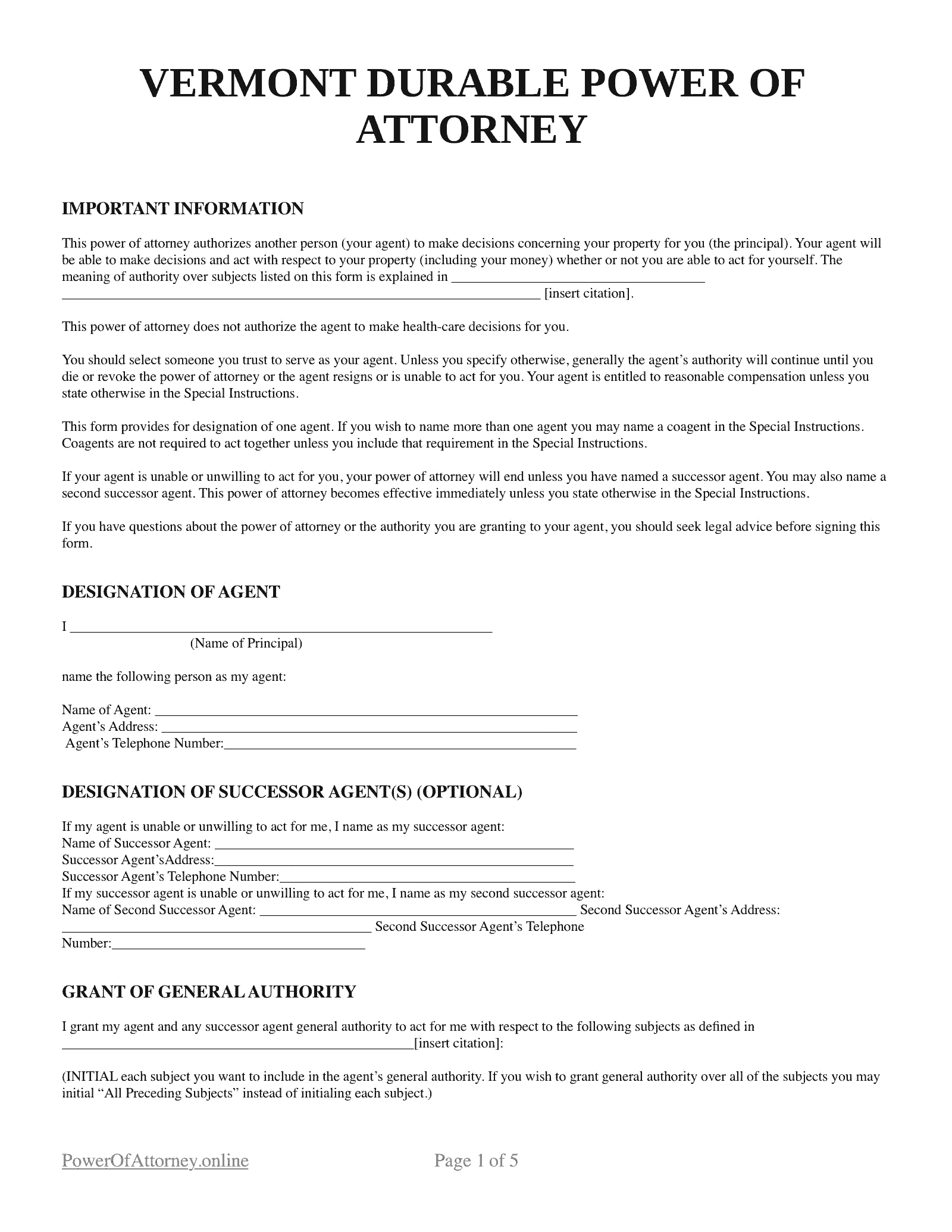Free Vermont Power of Attorney Forms
A power of attorney or POA is a legal document that allows a person to make a decision on behalf of another. The person making the decision is known as the agent or attorney-in-fact while the person they’re making the decision for is referred to as the principal.
POAs are typically enacted if the principal cannot personally attend to certain matters or if they anticipate that they might become incompetent in the future.

Vermont Power of Attorney By Type
Knowing the type of POA you need ensures that the document serves its purpose. Here are the most basic types of POAs:
- General Power of Attorney - this is the most popular type of document that gives the agent permission to make decisions on behalf of the principal. Decisions can range from financial to business-related and more. The document loses its power when the principal becomes incapacitated.
- Durable Power of Attorney - most POAs lose their power when the principal is legally declared as mentally incompetent, but not if it is durable. The document acts as the agent’s authority to continue deciding for the principal even when they become incapacitated so their affairs remain in order.
- Medical or Healthcare Power of Attorney - the form allows the agent to make health-related decisions pertaining to medications, treatments, end-of-life care, and more. It is almost always durable so that necessary medications and treatments will not be hindered due to lack of authority.
- Special Power of Attorney - this document only allows the agent to make certain decisions specified by the principal. The document’s power ends when the agent completes the tasks or transactions described in the document.
How To Get a Power of Attorney in Vermont
There are at least two ways to get a Vermont POA. First, you can drop by a local law firm to have the document prepared. If you want to save money, you can create the document yourself through a printable form. Download a Vermont POA online, fill it out, and sign it.
Vermont Power of Attorney Laws
Advance Directives for Health Care, Disposition of Remains, and Surrogate Decision Making: This section describes the law on authorizing an agent for healthcare decisions. It reads in part, “Direct the type of health care desired or not desired by the principal, which may include instructions regarding transfer from home, hospitalization, and specific treatments that the principal desires or rejects when being treated for a mental or physical condition or disability” (18 V.S.A. § 9702).